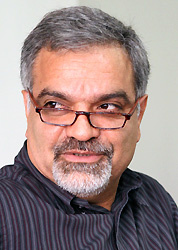Our Responsibility towards the Persian Gulf

Arab countries’ defiance of geographical correctness and the use of the term ‘Persian Gulf’ is in fact a defiance of history and incontrovertible facts; a gesture better analyzed within the context of stormy relations between Iran and some regional Arab states. The demagoguery orchestrated by some Arab leaders to provoke distrust in their public opinion towards Iran can in fact be effortlessly traced back to the days of Gamal Abdel-Nasser and his Pan-Arabism campaign and agenda.
Despite the turf war, the Persian Gulf is a geographical term, based on undeniable historical facts and supported by international legal documents. Apart from the evidence of thousands of historical documents and maps, the UN Secretariat has instructed its affiliates on the use of the correct term to identify this body of water. And the United Nations Group of Experts on Geographical Names (UNGEGN) attests to the historical roots of the term “Persian Gulf” (see this document).
These facts, however, should not allow us slip into complacency or lose our sensitivity over the frequent use of the incomplete “Gulf” or the fraudulent “Arabian Gulf”, which has even misled academic, political and cultural institutes that are not always aware of the history behind the correct name. On many occasions, discovering the facts and understanding the sensitivities of Iranians, foreign institutes have apologized and corrected the erroneous term they have employed.
But sensitivity is not all that we must exhibit. “Persian Gulf” was a name that testified to Iranians’ political, cultural and economic domination, at a time when no other civilization or even nation-state existed in this region. Demographic data proves that Iranians –founders of a great civilization- have been the earliest residents of the region surrounding the Persian Gulf. Sustaining economic dominance, the timely exploitation of energy resources, and development of Iran’s southern coast is a must if we don’t want to witness more instances of fraudulent names applied to the body of water.
It is the direct responsibility of the Iranian diplomatic apparatus to look after the well-being of Iranian citizens living in the Persian Gulf littoral states—allowing them to lead a life of dignity and prestige they deserve without succumbing to political or economic pressures—and to support their historical presence in the region and help them retain their Iranian identity without being forced to deny their roots.
Nevertheless, bringing to the fore the political and ethnic aspects of the issue, such as happened during the match between Zob-Ahan and Al-Ittihad, will simply fuel the controversy. Hasty and reckless efforts such as these will be quickly imitated by rivals, which will only lead to further use of the fraudulent term “Arabian Gulf” and will provoke ethnic sentiments.
Mohammad Farazmand is Iran’s former ambassador to Bahrain.

